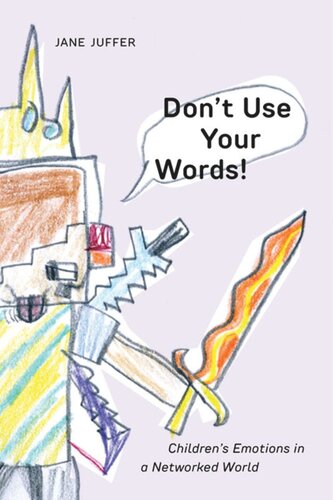

Most ebook files are in PDF format, so you can easily read them using various software such as Foxit Reader or directly on the Google Chrome browser.
Some ebook files are released by publishers in other formats such as .awz, .mobi, .epub, .fb2, etc. You may need to install specific software to read these formats on mobile/PC, such as Calibre.
Please read the tutorial at this link: https://ebookbell.com/faq
We offer FREE conversion to the popular formats you request; however, this may take some time. Therefore, right after payment, please email us, and we will try to provide the service as quickly as possible.
For some exceptional file formats or broken links (if any), please refrain from opening any disputes. Instead, email us first, and we will try to assist within a maximum of 6 hours.
EbookBell Team

0.0
0 reviewsHow children are taught to control their feelings and how they resist
this emotional management through cultural production.
Today, even young kids talk to each other across social media by referencing memes,songs, and movements, constructing a common vernacular that resists parental, educational, and media imperatives to name their feelings and thus control their bodies. Over the past two decades, children’s television programming has provided a therapeutic site for the processing of emotions such as anger, but in doing so has enforced normative structures of feeling that, Jane Juffer argues, weaken the intensity and range of children’s affective experiences.
Don’t Use Your Words! seeks to challenge those norms, highlighting the ways that kids express their feelings through cultural productions including drawings, fan art, memes, YouTube videos, dance moves, and conversations while gaming online. Focusing on kids between ages five and nine, Don’t Use Your Words! situates these productions in specific contexts, including immigration policy referenced in drawings by Central American children just released from detention centers and electoral politics as contested in kids’ artwork expressing their anger at Trump’s victory. Taking issue with the mainstream tendency to speak on behalf of children, Juffer argues that kids have the agency to answer for themselves: what does it feel like to be a kid?